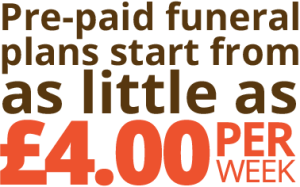Last week’s blog discussed the ‘the DNA of the disorganized.’ The blog tacitly concludes that planning is a good skill to master – it is a valuable asset, for those lucky enough to have such DNA. Planning brings order and ultimately, certainty, to events in life:
- Death – it is good to plan for our death by taking out appropriate insurance and for the Africans like myself, fulfilling certain cultural obligations.
- Old age – humans tend to invest during their working time, to enjoy a decent life in later years. The latter requires meticulous planning. For example: putting away 10% of income earned when in active employment.
- Career planning – we all have an ambition that we want to realize in life; many Z generation youths are planning to start their own business and employ themselves. They like freedom and as such, make deliberate career choices that drive them towards self-employment.

On the other hand, climate change, the 24/7 and turbulent world renders traditional planning a futile exercise. For example, it’s raining in Kenya and impossible to predict what part of Nairobi city may flood; against a strong foundation of R&D, companies may invest millions in product development, only for a competitor to bring to market a cheaper product option, and that does the same thing.
The speed at which activities are happening in company value chains and at an individual level renders traditional long-term planning irrelevant – yes, we have always had emergencies as well as abrupt changes in plans, but not of the same frequency and intensity we do today. The window to act on emerging situations is increasingly short, as whirlwind activities move data and information from one end of the world to the other in seconds
Ok, it is dangerous to condemn traditional and conservative planning to the archive of management tools. We still need orthodox planning for certain givens: both at the individual and organizational level. For example, death, old-age investment, and organizational manpower still require conservative planning approaches. It is not uncommon for organizations and individuals to plan years into the future, clearly articulating what needs to be done during the period in question. Years are broken down into annual, quarterly and monthly plans.
At the same time, ongoing unpredictability raises fundamental questions about the efficacy of conservative planning approaches. The turbulence in global value chain eco-systems renders detailed and complex planning a paper exercise. Therefore, we can no longer assume that by not following orthodox planning approaches, individuals and organizations become ineffective and inefficient. To the contrary, too much planning can become a liability
How do we plan for an uncertain future?
Welcome to the world of just-in-time (J.I.T) planning; yes, we still need to plan, however, uncertain the future is, only in short spans of time. Planning is not only J.I.T but requires a different skills set of the planner. ‘Structuring and Analysis’ are no longer the only skills required to deliver effective planning.

It may not surprise you to learn that employers are looking for different skills in the ‘new planner’. The ability to deal with ambiguity, unstructured discourse, creating order from chaos, quick wit, and conducting real-time mental/multiple scans on operating environments, deciphering immediate implications for individual and organization eco-systems.
The modern planner is like a mini super-computer processing terra bits of data a day. Traditional business school graduates have to learn new skills at work. What the graduates get at college is no longer enough.
The reality:
Plans start to morph into relics before the so-called planners leave meeting rooms. A fast changing operating environment and an incremental culture to creating value at work and in homes, renders traditional planning exercises a waste of time. Modern planners need to learn to respond to continually shifting situations – planning is about preparedness and having the required competencies to respond to uncertainty, in a manner that addresses futures, that are increasingly unknown to man.
Ultimately, traditional planning has not only become a futile exercise for individuals and organizations, but the alternative is a much more complex activity, that is confusing to those in modern management. Managers still have to plan but in real time. Instead of a single multi-year plan that individuals and organizations are accustomed to, the new planning paradigm brings a myriad of spot-plans, that have to fit a future that is uncertain.
Planning is no longer privy to the strategy and analysis departments. Environmental turbulence and the resulting uncertainty is causing ‘planning expertise egalitarianism’ – i.e. all units and individuals have turned into planners.
Goaded by advancements in technology, planning software litter every organization and individual value chain systems. We all have interacted with: ‘x1 page strategic planning software’, complex activity scheduling tools; mind mapping software, etc. We are more than ever before, able to create and tweak plans on the go, yet still have a clear roadmap of our future. In effect, technology is fast turning all of us into effective planning experts

Credit: Wealden.gov.uk
Modern planning should take the form of the blueprint of a title deed. Once the outside boundary of a piece of land is marked, and as long as individuals and firms remain within the border markers, there should be freedom to operate freely within defined boundaries. The latter requires a different set of skills when compared to orthodox planning. Planners have to plan on their feet, in real time, and in relatively broader margins with little room for error. Conference room planning is dead!
Business and management schools should tweak their approaches to teaching strategy and planning.
Leave a comment